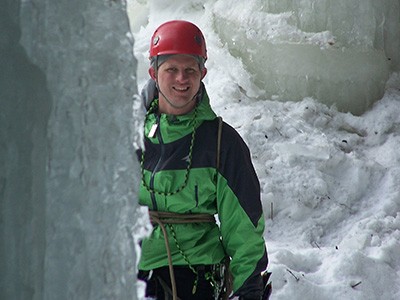
Ready to take the next step? — Request More Info & Apply today!
Chemical Dependency Counseling
Qualified specialists are in demand as we learn more about the frequency and severity of alcoholism and other substance abuse. The Chemical Dependency Counseling degree prepares you as a professional in the addictions field for practice experiences in rehabilitation centers, educational settings, community organizations, inpatient/outpatient programs, residential settings, correctional facilities, hospitals, and related public agencies.
Specialized courses in counseling and prevention are combined with courses in the humanities, social sciences, math, and science. The program also provides required continuing education and clock hours for those already working in the field.
The 350-clock-hour certificate program in Chemical Dependency Counseling is also available at Tompkins Cortland Community College. It is intended for individuals who are, A) seeking a 350-clock-hour certificate to meet New York State Office of Alcohol and Substance Abuse Services (OASAS) credentialing requirements, B) seeking to enhance their current employment or academic experience with concentrated study in a specialized career field, or C) seeking to complete their certificate program requirements partially or entirely online. Beside the 350 clock hours of education/training, students must also complete one to three years of specific work experience in the chemical dependency field to meet eligibility requirements for the NYS OASAS credentialing examination.
In addition to the degree and certificate, the 250-clock-hour Credentialed Prevention Professional (CPP) and the 120-clock-hour Credentialed Prevention Specialist (CPS) are now also available at TC3. Students interested in prevention credentialing would complete either the chemical dependency degree or certificate program, along with prevention specific coursework. The CPP is intended for individuals with an existing bachelor’s degree who have completed 4,000 hours of relevant paid work experience and have completed the 250-clock-hour program, along with successful completion of the IC&RC exam. The CPS is intended for those who have completed 2,000 hours of paid work experience, have completed the 120-clock-hour program, and have successfully completed the IC&RC exam.
Degree Requirements
- Chemical Dependency Counseling, A.A.S.
- Chemical Dependency Counseling, Certificate
- Microcredential: Chemical Dependency Counselor Assistant
- Microcredential: Residential Aide
Clock Hours and Continuing Education
The Chemical Dependency Counseling degree and certificate programs provide the 350 clock hours of education and training for credentialed alcoholism and substance counselors (CASAC), the 250 clock hours of education and training for credentialed prevention professionals (CPP), and the 120 clock hours of education and training for credentialed prevention specialists (CPS) required by the New York State Office of Alcoholism and Substance Abuse, The programs also provide course work for counselors/prevention workers pursuing re-credentialing.
Field Experience
Students will participate in one semester of counseling or prevention related field experience as part of the Chemical Dependency Counseling program. Each four-credit fieldwork course requires 120-150 hours of work experience under the direction of a licensed, certified, or credentialed health care or treatment professional, plus one hour of classroom instruction per week.
Careers on Career Coach
This program provides training for employment in human service and criminal justice agencies as case managers, case workers, social welfare examiners, youth and child care workers, and home visitors. Our graduates have found meaningful employment at an array or organizations, including Cayuga Addiction Recovery Services, Catholic Charities, Seven Valleys Council, Tully Hill CD Treatment Center, Veterans Administration Medical Hospital, the William George Agency, Dick VanDyke ATC, and Willard Drug Treatment Center.
Program Chairs

PATTY TVAROHA, MAAE
Associate Professor, Human Services
Patty Tvaroha is a proud alumnus of Tompkins Cortland’s Human Services program. After graduating from Tompkins Cortland in 1998, Patty transferred to SUNY Cortland to become the first student to complete the two plus two articulation agreement and earn a BS in Human Services.

PATRICK MERCER
Professor
When I was completing my undergraduate degrees in Recreation, Outdoor Management, and Leisure Commercial Management at Lock Haven University, I stumbled across a sign while rock climbing during spring break at Seneca Rocks in WV. It read, “Here ends the Realm of the Hiker...” As an Outdoor Educator and Associate Professor, I heed the message from this sign as I help people overcome their own challenges to experience something greater or more intense in the field of Recreation and Leisure Studies.
Transfer Options
Recent graduates have continued their education in addiction studies, psychology, human services, health education, and social work at:
- Binghamton University
- SUNY College at Brockport
- Cornell University
- SUNY College at Cortland
- Empire State College
- Ithaca College
- University of Phoenix
- SUNY College at Plattsburgh
- Syracuse University
Student Showcase
Campus Community Coalition

As a Chemical Dependency Major, organizations such as the Campus Community Coalition provide students with an opportunity to gain hands on experience addressing substance abuse issues within the community. Comprised of both students and community members, the Coalition hosts various workshops (assessment, police and enforcement, messaging and communication, ad recovery) to help reduce rates of underage drinking, binge drinking, and drug use, on and off campus. Be sure to be on the lookout for opportunities to aide in prevention education throughout the community.
